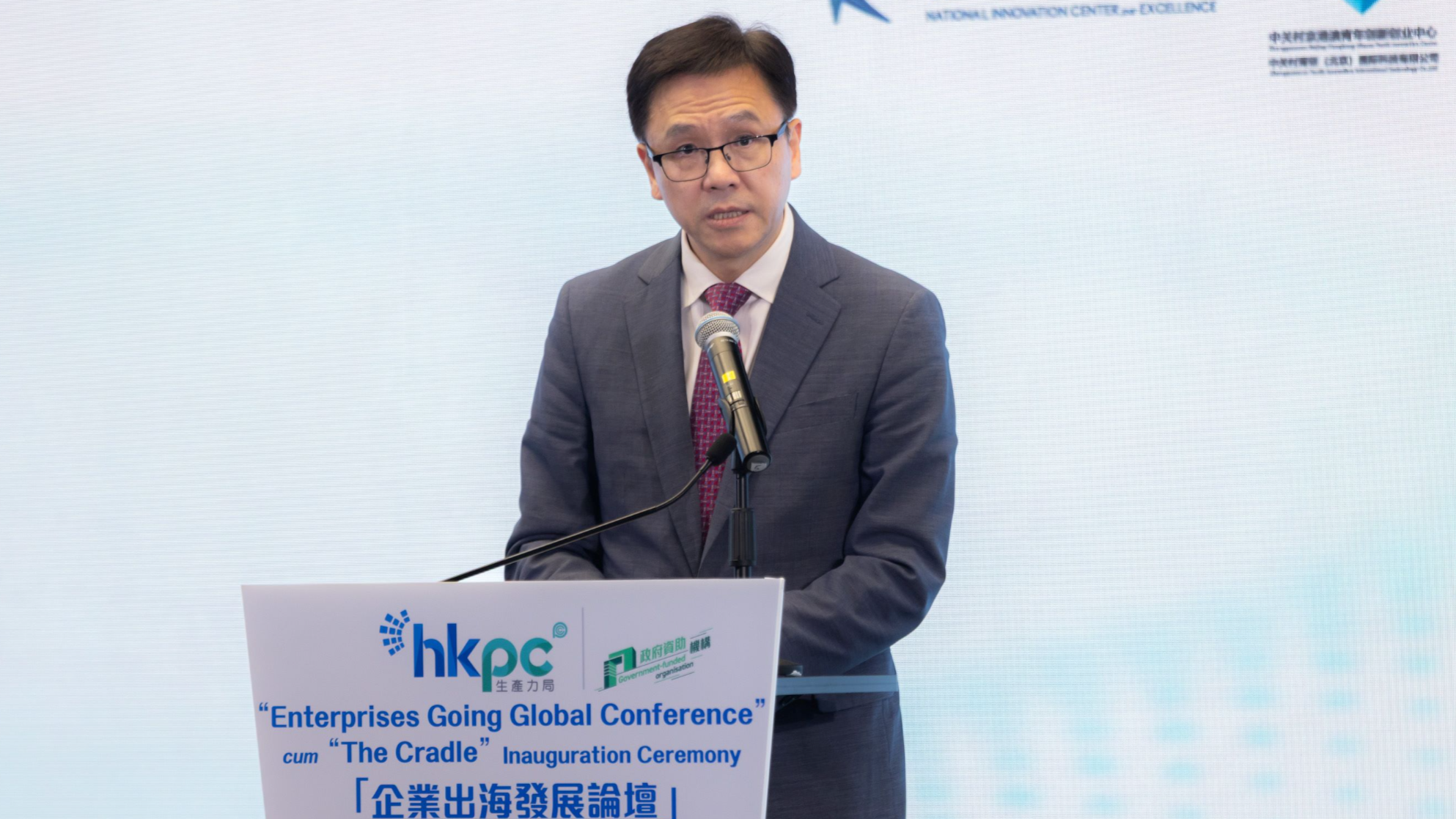
Secretary for Innovation, Technology and Industry Sun Dong has reaffirmed Hong Kong’s dedication to strengthening the nation’s technological independence through its focused efforts in key areas like artificial intelligence and semiconductors, and by building a robust tech talent pool.
In an interview with China Daily, Sun described the special administrative region as “an indispensable force” within the national innovation landscape. He highlighted the city’s rapid advancement as a hub for international innovation and technology, and a magnet for high-caliber talent — roles designated for Hong Kong in key national strategies.
Sun has been instrumental in this progress. Months after his appointment in 2022, he led the release of the Hong Kong Innovation and Technology Development Blueprint. The document provides a clearer pathway for local industries, helping foster a societal consensus on technology’s role in driving high-quality development.
A core theme of this development, in Sun’s words, is to ensure Hong Kong’s efforts are “closely integrated with the overall strategy of the country”.
For example, the city has made significant investments in the AI sector, supported by policies, capital, infrastructure, and talent development. A flagship initiative is the allocation of HK$1 billion ($127.4 million) for the establishment of the Hong Kong AI Research and Development Institute, positioning it as one of the five key public R&D pillars.
These efforts align with the central authorities’ Government Work Report this year, which identified AI as essential for fostering new quality productive forces.
“AI development in Hong Kong actually has made significant strides,” Sun said, citing advances in R&D and in computing power.
Five Hong Kong universities rank among the world’s top 50 in AI and data science disciplines, according to the QS World University Rankings by Subject 2025. The number is the highest in Asia and second globally after the United States.
ALSO READ: Exclusive: Hetao’s HK Park set to welcome first tenants soon
By the end of this year, Hong Kong’s data facilities are expected to deliver up to 5,000 petaflops of computational power, which Sun believes is sufficient to support the growth of the local AI industry over the coming years.
Following the February launch of HKGAI V1 — the first locally developed large language model — HKChat, a chat robot powered by HKGAI, will be available to the public later this year.
Trained on data from the Chinese mainland, Hong Kong and abroad, HKChat has functions such as transcribing meeting notes and responding to government-service inquiries. “It will be a good assistant for the Hong Kong residents’ life and work,” Sun said.
Fueling tech self-reliance
Amid the nation’s intensified efforts to achieve self-reliance in advanced science and technology, Hong Kong is ready to contribute with its unique strengths.
The Hong Kong Microelectronics Research and Development Institute, launched last year, focuses on third-generation semiconductor technologies — a crucial component for new energy vehicles and power electronics, with their superior power density and ability to operate at higher temperatures.
ALSO READ: Racing for intelligence
The process benefits from regional teamwork, with Hong Kong’s R&D strengths and pilot production capacities complementing the mature industrial chains of neighboring Chinese mainland cities. Together, they enhance the Guangdong-Hong Kong-Macao Greater Bay Area’s ability to complete independent research-to-production cycles.
This synergy has already earned the Shenzhen-Hong Kong-Guangzhou science and technology cluster the second-most innovative place in the world for the fifth consecutive year, according to the 2024 Global Innovation Index.
Hong Kong’s open economy and international connectivity offer diverse procurement and cooperation options, reducing dependency on specific economies.
“We need to fortify our international advantages while enhancing our own strengths. A dual strategy will help us deal with challenges that arise from geopolitical tensions,” said Sun.
Sun also underscored the importance of talent, saying the government will continue to lure tech-savvy professionals from all over the world through favorable policies, and will increase investment in fundamental and higher education to nurture local talent.
READ MORE: Startup competition 'HK Tech 300' goes global, expands to new markets
The Northern Metropolis, currently under construction as the city’s next science and technology engine, is expected to create numerous innovation-related jobs for young people in Hong Kong, further enhancing the city’s R&D ecosystem.


